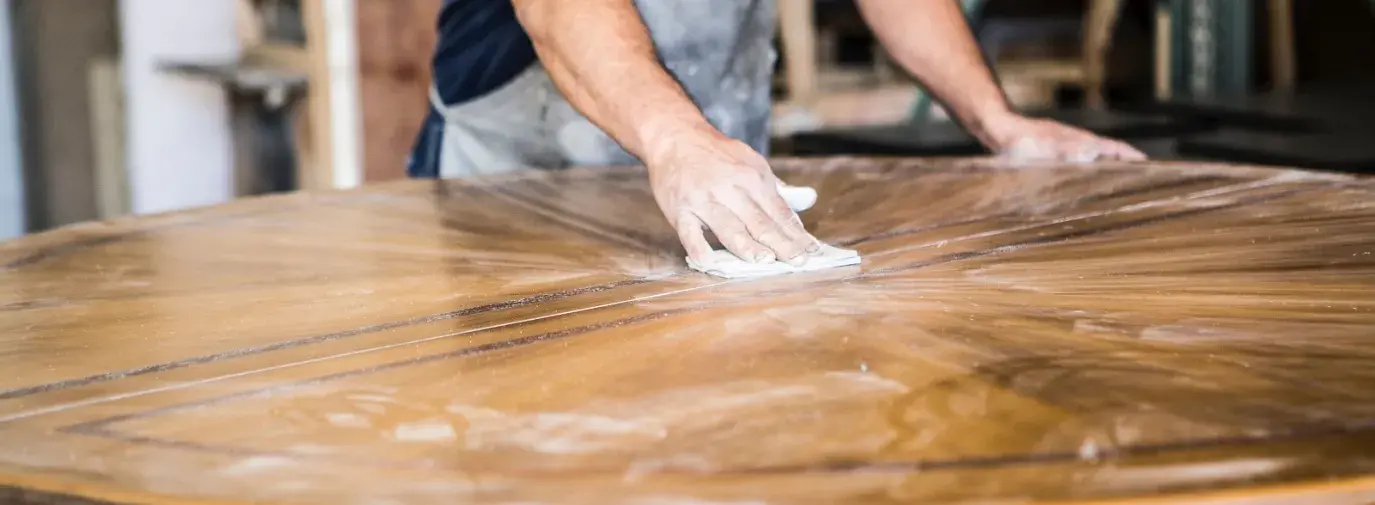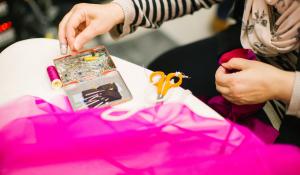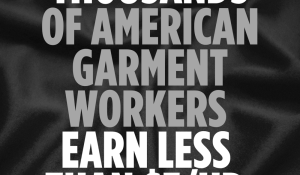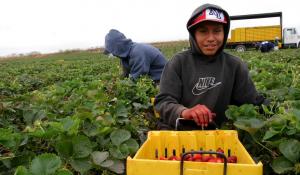
While many American companies have chosen to take the easy route and exploit workers from vulnerable populations, such as immigrants, the deep green companies in the Green Business Network® protect workers across their supply chains.
A few have even gone out of their way to employ a business model that empowers traditionally disenfranchised populations.
 |
|
Rivanna Designs.
|
Jobs For Refugees
Crystal Mario, founder and CEO of Rivanna Designs, served as an English-as-a-second-language (ESL) tutor while in college, and she often played squash with her ESL students, including Raul, a former attorney and one of 7,000 Chilean refugees who resettled in Canada after the violent overthrow of the government and installation of a military dictatorship led by General Augusto Pinochet. One day while the two were having a game, Mario’s racquet slipped out of her hands and flew across the court, almost hitting him at a blistering speed.
“I was young, genuinely shaken, and near tears, and I said, ‘Raul, I’m so sorry. I almost killed you!’” she recalls. Raul responded with a laugh. He pulled up his shirt and pointed to a large scar on his chest, near his heart. “You see here? This almost killed me.” He pointed to another scar. “And you see here? This almost killed me. You must understand, I have been shot. I have been tortured. You did not almost kill me. I have never been better.”
“Then he handed my racquet back to me and said, ‘Now, let’s keep going,’” Mario says.
The incident, and Raul’s memorable advice, “let’s keep going,” stayed with her for years. When she founded Rivanna Designs—which sells awards, plaques, and promotional items made of recycled glass and sustainable wood—she partnered with International Rescue Committee Charlottesville (IRC) to hire IRC clients. IRC helps provide international refugees like Raul with the means to survive, recover, and restore their dignity.
Today, Rivanna continues to hire newly arrived refugees, providing them with the kind of job whose features are important in meeting their needs as they recover from trauma and resettlement: flexible hours, a living wage, on-site training for those who speak English and those who do not, and a workplace accessible by public transportation.
Rivanna’s care in reaching out to this vulnerable population has been a benefit to both the employees and the company, says Mario. She speaks of workers like Admir Hasanovic, “who never missed a work assignment or deadline in 12 years.” With his wife Binasa, Hasanovic saved money, bought a car, bought a house, and sent their daughter Melisa to college. “Their generosity and hospitality is such that no one ever leaves their home without a full belly and a full heart,” she adds.
“And with the contributions and collective determination of Admir and other IRC clients, we’ve built a successful business that has created new jobs in our community not only for more recently arrived refugees, but for that other group in Charlottesville in dire need of employment, recent University of Virginia graduates,” she says. “I have come to depend on IRC clients not simply because of their solid work ethic, but because they bring with them unique and valuable strengths, experiences, perspectives, and skills.”
Beans for a Better Life
 |
|
Women's Bean Project.
|
Crystal Mario is not the only green business owner to use her company to lift up vulnerable populations. While volunteering at a women’s shelter in Denver, CO, Jossy Eyre observed that while the shelter worked to fix a particular symptom of poverty—homelessness—it did little to address its cause, which she perceived to be a lack of employable skills.
Noticing that a lot of her friends ate soup, Eyre bought $500 worth of beans with her own money and taught two women how to assemble pre-made soup mixes. That holiday season, Eyre sold the mixes and saw a 600 percent return on her $500 investment.
Fast-forward 25 years, and the company that started from those humble beginnings, the Women’s Bean Project (WBP), now has an operating budget of $2.1 million and employs over 70 women. In a six-month process, the gourmet food and jewelry company moves its employees, mostly chronically unemployed women, through all aspects of the business to help them create diversified skill sets. It also trains participants in how to find a job once the program is over.
That attention to detail seems to pay off. According to WBP CEO Tamra Ryan, 100 percent of WBP graduates are able to keep their next job after the first six months of employment, and 85 percent retain employment after a full year.
“We employ women who need someone to believe in them,who have already had some hard chapters in their lives and work to create a safe and accepting environment to make the rest of [the chapters] better,” she says.
Fair Wages for Farmers
 |
|
TS Designs.
|
And after watching farmers in his native state of North Carolina take a hit during the ongoing economic downturn, TS Designs president Eric Henry decided he could use his eco-friendly textile printing and dyeing company to do something about it. He brought together farmers and business leaders to launch the Cotton of the Carolinas initiative, which officially marked its second year in 2013 making organic cotton T-shirts grown, woven, and sewn entirely in the Carolinas.
The result is a batch of organic cotton shirts made in the US entirely within a 750-mile radius. In comparison, a globally sourced shirt can travel more than 16,000 miles before being sold, according to Henry. It also empowered the state’s cotton farmers, paying them rather than paying them bottom dollar and shipping the cotton overseas for production, as conventional T-shirt production often does.
The first batch of Cotton of the Carolinas shirts opened up more than 700 local, green jobs for the state. As a result, the initiative has created a model green business that is good for the planet and good for workers. The entire supply chain “from dirt to shirt” is completely transparent. Customers can track their shirt’s journey via the
initiative’s Web site by entering a code on the shirt’s label.
Baked Goods that Do Good
 |
|
Greyston Bakery.
|
Greyston Bakery, a solar-powered company specializing in premium-quality brownies and other baked goods, hires and trains the ex convicts, ex-addicts, other “hard to employ” populations of Yonkers, NY. Greyston provides a comprehensive training program, fair wages, and benefits, so its employees can attain the skills and financial stability necessary to achieve self-sufficiency.
Greyston keeps working for its employees long after they leave work. The bakery is owned by and donates all of its profits to the Greyston Foundation, a network of for-profit and not-for-profit entities working on a wide range of community-development initiatives, including affordable housing, child care, and HIV/AIDS-friendly housing and care.
As the Greyston motto says, “We don’t hire people to bake brownies. We bake brownies to hire people.”







